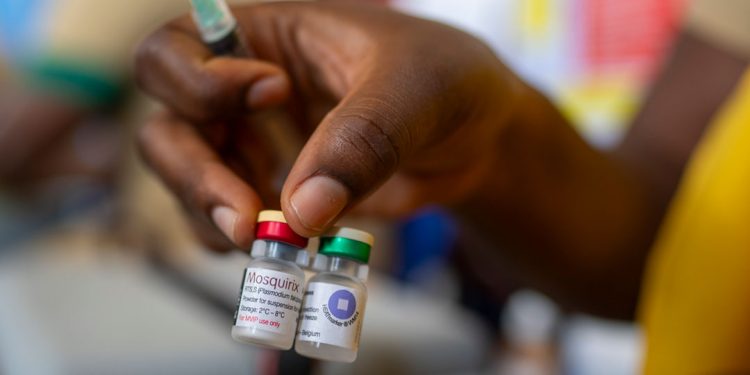The Nigerian federal government has officially commenced its malaria vaccination program, with Kebbi and Bayelsa states selected for the first phase of the rollout. This marks a historic milestone as the R21/Matrix-M malaria vaccine becomes integrated into the country’s National Immunization Schedule.
Key Highlights
- First Phase Rollout:
- The initial phase targets children aged 5 to 15 months, with Kebbi State aiming to vaccinate 595,000 children.
- The vaccine will later expand to 19 states and the Federal Capital Territory (FCT) in the second phase, and the remaining 15 states in the third phase by 2025.
- Vaccine Details:
- The R21/Matrix-M malaria vaccine, developed by Oxford University and produced by the Serum Institute of India in partnership with Novavax, has been globally recognized as a groundbreaking tool in malaria prevention.
- Nigeria received 1 million doses of the vaccine, donated by Gavi, the Vaccine Alliance, with logistical support from UNICEF and the World Health Organization (WHO).
- Global and National Impact:
- Malaria remains a leading cause of death in Nigeria, responsible for 27% of the global malaria burden and 31% of malaria-related deaths worldwide, predominantly affecting children under five.
- The vaccine, in combination with preventive measures like mosquito nets and antimalarial drugs, is expected to significantly reduce malaria cases and fatalities, moving the country closer to its goal of a malaria-free future.
- Expert Opinions:
- Dr. Walter Mulombo, WHO Representative in Nigeria, emphasized the vaccine’s potential to drastically reduce malaria’s burden.
- Dr. Muyi Aina, Executive Director of the National Primary Health Care Development Agency (NPHCDA), reiterated the government’s commitment to expanding access to the vaccine across all states in phases.
Importance of the R21 Vaccine
The R21 vaccine is a significant advancement in global health, offering a 77% efficacy rate in clinical trials. It is tailored to regions like Nigeria, which accounts for the highest global burden of malaria.
The vaccine’s introduction in Nigeria positions the country as a leader in combating malaria, setting an example for other malaria-endemic nations.
Next Steps
The program will scale up gradually to ensure proper logistics and equitable vaccine distribution. Stakeholders are optimistic that this initiative will save hundreds of thousands of lives annually and serve as a critical component of Nigeria’s broader public health agenda.










